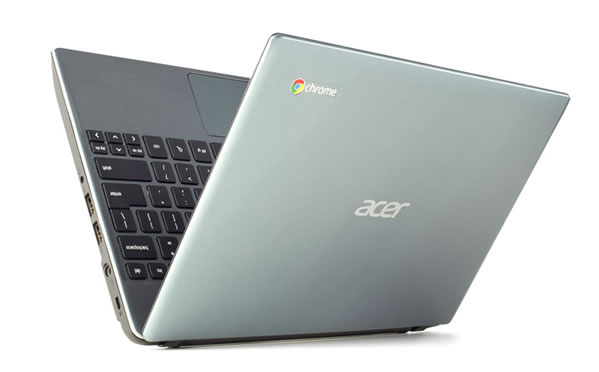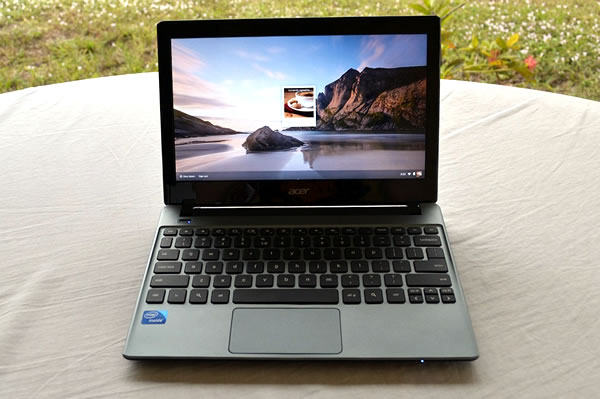Worth the $200 or Not?
Now we have ourselves that $200 question. Is the C7 for you and I, the tech-crazed, spec-obsessed power user? No, it isn't. If it was it would fill a role that I don't think exists, that of a "living room laptop." The term has caught fire in tech circles lately, but the living room laptop is no longer real. It was usurped by the iPad, or now, the impressively cheap alternatives like the Nexus 7, Kindle Fire and Apple's own mini variant of the iPad.

More than that, the living room laptop was killed by the smartphone. Every one of these alternatives fills the living room (read: consumption) role better than a Chromebook can. The differences are clear. Android and iOS have more mature ecosystems than Chrome OS, especially in terms of content availability and consumption. The Chromebook's advantage is its keyboard, which isn't a real advantage in terms of the living-room laptop.
If you want a hybrid device that's good enough at content creation to get by, keep looking. The Chromebook's value proposition is shockingly similar to the proposition of Windows RT and the Microsoft Surface. All of the advertising is about power, ease of use and not compromising. Unfortunately, both of these operating systems face so many compromises in terms of ecosystem, that their ease of use is significantly undermined.
But let's set the ecosystem comparison aside for a moment...

You want a Chromebook, period. Is the Acer C7 worth your money? Maybe, but you could do better elsewhere. The Samsung Chromebook is $50 more at $249. For those fifty dollars, you receive a laptop that is half a pound lighter, .3-inch slimmer and generally more attractive. The Intel processor is traded in for an ARM-based Samsung Exynos Dual, which by all accounts, handles Chrome OS with aplomb. The battery life is nearly doubled as well. The Samsung Chromebook is rated for six and a half hours to the C7's (most of) four hours.
To be fair, the C7 has advantages as well. The Samsung is equipped with only 16GB flash storage to the C7's 320GB HDD. Both come with the aforementioned 100GB of Google Drive space. The C7 also holds a one-port USB advantage over the Samsung, but it's worth mentioning that one of the two USB ports on the Samsung is a 3.0. Rounding things out, the Samsung has Bluetooth and the Acer does not. The Samsung is simply a better computer and it's worth the $50 price premium.
score
Pros: $199 is hard to beat. Chrome OS works well for what it does. Excellent connectivity and decent performance.
Cons: Build quality is lacking and battery life is on the low side. OS ecosystem is very limiting. Even at this price, we feel the competition has more rounded options.
